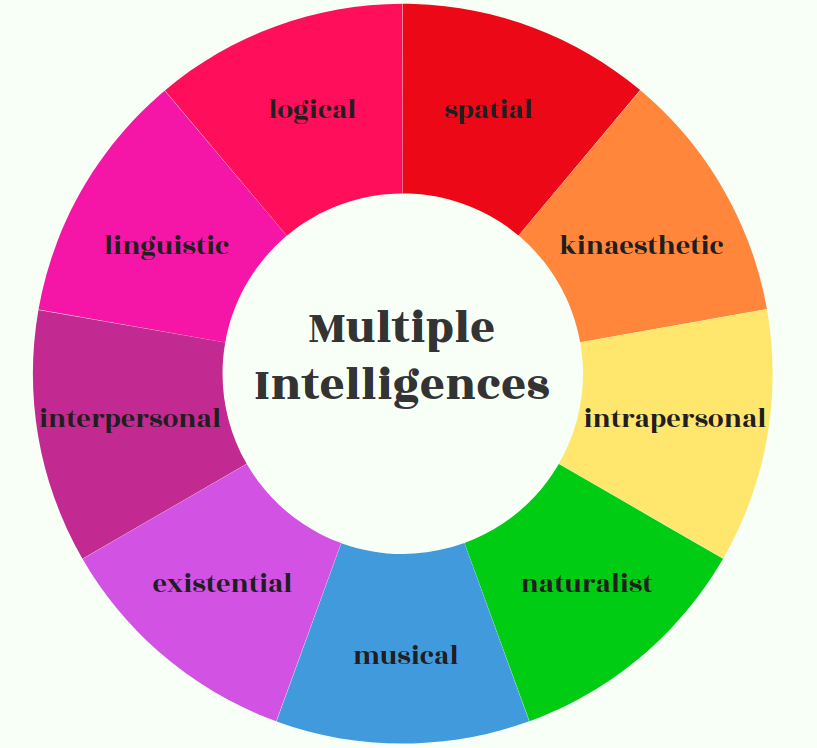Education is constantly evolving, with newly emerging theories changing the way teaching and learning are approached by parents, educators and children.
One particularly influential theory is that of Howard Gardner's 'Multiple Intelligences'. Essentially, the theory encourages a move away from restrictive traditional definitions of intelligence heavily based on skills in logic and linguistic. Instead, a more individualised model is proposed.
An oft-used analogy is that evaluating every child on only one aspect of intelligence is like judging a fish on its ability to climb a tree. A child may do poorly in science and maths, for example (both logic-based subjects) but might excel in physical or music-based activities.
The Multiple Intelligences (MI) approach is being embraced by international schools across the world, as it helps foster the global mindedness that expat families value.
Gardner's Theory of Multiple Intelligences
The basics
The current model for how we understand multiple intelligences was conceptualised by Howard Gardner, a highly respected professor of psychology at Harvard.
Gardner's multiple-intelligences theory proposes that intelligence is not a straightforward and easily measurable attribute as has traditionally implied by widely used assessments such as the IQ test. Such tests are heavily weighted towards language and mathematical skills and therefore don't account for the numerous other types of intelligences an individual may possess.
Gardner separates intelligences into nine broad facets. These facets are:
-
 Verbal-linguistic intelligence ('word smart')
Verbal-linguistic intelligence ('word smart') -
Logical-mathematical intelligence ('math smart')
-
Visual-spatial intelligence ('picture smart')
-
Bodily-kinaesthetic intelligence ('body smart')
-
Intrapersonal intelligence ('self smart')
-
Interpersonal intelligence ('people smart')
-
Naturalist intelligence ('nature smart')
-
Musical intelligence ('music smart')
-
Existential intelligence ('life smart')
Gardner states that all individuals possess all types of intelligence to some degree, but that everyone has their own unique combination of intelligence types. Each type of intelligence can either be nurtured or neglected by a child's style of education.
How is the MI theory used in schools?
The overemphasis of mathematical and linguistic intelligence in schools naturally lends itself to a rote style of teaching and learning. This method of education has been criticised widely for not teaching critical-thinking skills and for not adequately preparing children for life beyond the classroom.
Today, many schools eschew this rather restrictive approach in favour of teaching styles that incorporate and acknowledge each child's individuality. The result is a more holistic education.
What curricula is the MI approach used in?
The MI approach can be incorporated into most, in not all, curricula, as it relates more to the style and method of teaching as opposed to the content of teaching. Some national education systems incorporate the MI approach into the government-mandated curriculum. However, executing this approach requires individualised attention to learners, something that is not always possible in public schools, particularly if they are oversubscribed.
For this reason, the MI approach often works best in private schooling, where classes are smaller, and more resources are available.
It's worth noting that the holistic style of education espoused by the multiple-intelligences theory works especially well with the International Baccalaureate and its inquiry-based approach.
Which schools use an MI approach?
Here at Expat Arrivals, we maintain a directory of international schools across the globe. Here are a few schools that cite Gardner's Theory of Intelligences as influential to their method of teaching:


